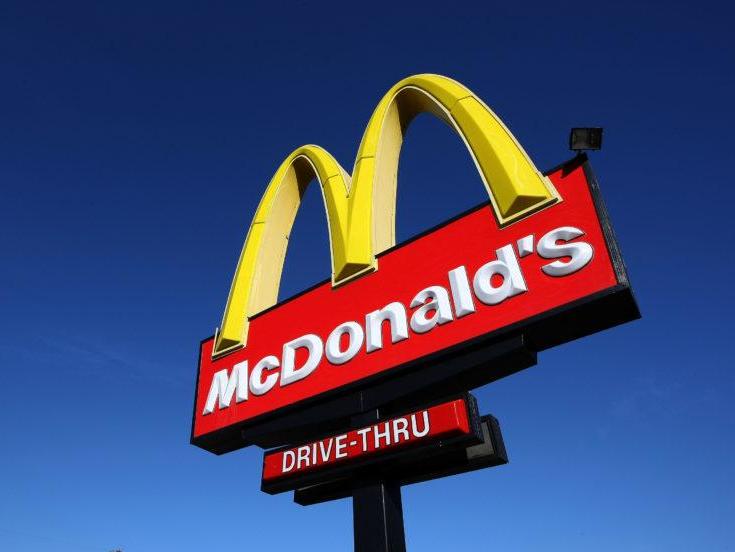McDonald's salads linked to outbreak of parasitic illness which has infected hundreds in US
Infection traced back to company supplying restaurant chain with romaine lettuce and carrots

Your support helps us to tell the story
From reproductive rights to climate change to Big Tech, The Independent is on the ground when the story is developing. Whether it's investigating the financials of Elon Musk's pro-Trump PAC or producing our latest documentary, 'The A Word', which shines a light on the American women fighting for reproductive rights, we know how important it is to parse out the facts from the messaging.
At such a critical moment in US history, we need reporters on the ground. Your donation allows us to keep sending journalists to speak to both sides of the story.
The Independent is trusted by Americans across the entire political spectrum. And unlike many other quality news outlets, we choose not to lock Americans out of our reporting and analysis with paywalls. We believe quality journalism should be available to everyone, paid for by those who can afford it.
Your support makes all the difference.More than 400 people have been infected with a parasite after eating McDonald’s salads in the US, according to health officials.
The outbreak of Cyclospora – which can cause explosive diarrhoea – was first reported in May and has been linked to a mix of romaine lettuce and carrots.
It led to McDonald’s recalling salads from 3,000 restaurants throughout the American midwest and changing its supplier.
The US Food and Drug Administration (FDA) has now confirmed 436 cases of Cyclospora infection in 15 states, resulting in 20 people needing hospital treatment.
Cyclospora, an infection of the bowel caused by the parasite Cyclospora cayetanensis, is usually caught from eating raw fruit and vegetables contaminated with human faeces.
Symptoms such as stomach cramps, flatulence and loss of appetite begin about a week after exposure and the illness can last more than a month if not treated.
The outbreak was first reported in Illinois in May and traced to a Fresh Express salad mix which had been supplied to McDonalds as well as other distributors.
Customers have fallen ill in Illinois, Indiana, Iowa, Kentucky, Minnesota, Missouri, Nebraska, Ohio, South Dakota, Tennessee and Wisconsin. Further cases in Connecticut, Tennessee, Virginia and Florida involve people who purchased salads while travelling in Illinois and Kentucky.
McDonald’s said in a statement: “The health and safety of our customers and the people who work in McDonald’s restaurants is always our top priority. We proactively decided to remove our lettuce blend in impacted restaurants and replace it through a different supplier.
“McDonald’s is committed to the highest standards of food safety and quality and we continue to cooperate and support regulatory and public health officials in their investigations.”
On 26 July tests of an unused package of Fresh Express salad mix containing romaine lettuce and carrots – which had an expiry date of 19 July – confirmed the presence of Cyclospora.
Further investigation revealed the lettuce had also been used for premade salad and wraps supplied to the large grocery chains Trader Joe’s, Kroger, and Walgreens by the distributor Caito Foods of Indianopolis.
A public health alert was issued by the US Department of Agriculture and shoppers were warned not to eat beef, pork and poultry salad and wraps with expiry dates of between 18 and 23 July.
The FDA said there is no evidence to suggest it is related to another Cyclospora outbreak linked to Del Monte vegetable trays.
“The investigation is ongoing and the FDA is currently reviewing distribution and supplier information for romaine and carrots,” said the FDA in a statement on Friday.
It urged restaurants to make sure employees washed their hands and surfaces before and handling food.
Previous outbreaks of Cyclospora have been linked to raspberries, basil and snow peas.
Last month it emerged an outbreak of salmonella outbreak linked to the popular Kellogg’s cereal Honey Smacks had infected 100 people in 33 US states.
Join our commenting forum
Join thought-provoking conversations, follow other Independent readers and see their replies
Comments